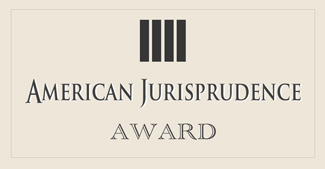
In Utah, stalking charges are very serious. The penalties for a person convicted of this crime can be extreme, possibly including a long prison sentence, an enormous fine, and a record of a criminal conviction. For the greatest likelihood of avoiding the worst punishments, you need the best criminal stalking defense lawyer Salt Lake City, Utah, has available to you.
Click to jump to section:
- What is Considered Stalking in Utah?
- Harassment vs. Stalking
- Penalties for Stalking in Utah
- Types of Stalking Charges
- Facing Trial for a Stalking Charge, Contact Wasatch Defense Attorneys
If you are facing stalking charges in Utah, contact Wasatch Defense Lawyers for guidance as soon as possible after you are arrested, before you give a statement to law enforcement.
What is Considered Stalking in Utah?
Stalking means that the accused has allegedly chosen a victim and threatened, bullied, or harassed that person two or more times, causing the victim to feel intimidated or frightened. If the alleged stalker has already received a no-contact order but has defied that existing prohibition, the violation of restraining order offense is also defined as stalking.
Typically, stalking involves the perpetrator going to the victim’s residence or workplace, possibly confronting the victim. But, acts of stalking can involve going to the victim’s neighbor’s home or family member’s home or contacting the victim’s friends, employer, coworkers, employees, or others.
Code 76-5-106.5 of Utah’s laws defines stalking as a person’s conduct or behavior towards another person despite knowing it will cause emotional distress or fear in the victim. Conduct that is considered stalking includes:
- Repeatedly following or approaching a person
- Direct confrontation
- Illegally monitoring or surveilling a person
- Sending text messages or e-mails to the victim
- Appearing at the victim’s workplace or place of residence
- Soliciting information from third parties about the victim
- Threats
- Unwanted communication with the person
- Sending items to the person
To sustain a stalking charge, the prosecution must prove beyond a reasonable doubt that the defendant’s pattern of conduct towards the victim would result in reasonable fear or distress. In Utah, a stalking injunction remains valid for three years from the date the respondent is served. However, a permanent injunction may be served in case of a criminal case.
Harassment vs. Stalking
The essential difference between the offenses of stalking and harassment is that stalking is defined by a particular course of behavior that includes a minimum of two occurrences. In other words, harassment may only involve one occurrence of criminal act, whereas stalking must occur at least twice before charges can be legally filed.
Penalties for Stalking in Utah
The punishments for stalking convictions vary widely, based on the nature and number of the offenses. Utah’s criminal offenses fall under two categories: serious offenses, which are referred to as felonies, and lesser offenses, known as misdemeanors. While the latter have lighter penalties, both could result in months of incarceration alongside hefty penalties. Also, both result in a criminal record that could affect your ability to get a job in the future or a professional certificate.
Misdemeanor
Stalking is a class A misdemeanor:
(a) upon the offender’s first violation of Subsection (2); or
(b) if the offender violated a stalking injunction.
A class A misdemeanor is punishable by up to one-year imprisonment and a fine of up to $1,000.00.
Felony
Third Degree Felony
Stalking is a third-degree felony if the offender:
(a) has been previously convicted of an offense of stalking;
(b) has been previously convicted in another jurisdiction of an offense that is substantially similar to the offense of stalking;
(c) has been previously convicted of any felony offense in Utah or of any crime in another jurisdiction which, if committed in Utah, would be a felony, in which the victim of the stalking offense or a member of the victim’s immediate family was also a victim of the previous felony offense;
(d) violated a permanent criminal stalking injunction; or
(e) has been or is at the time of the offense a cohabitant of the victim.
A third-degree felony is punishable by up to five years imprisonment and a fine of up to $5,000.00.
Second Degree Felony
Stalking is a second-degree felony if the offender:
(a) used a dangerous weapon or used other means or force likely to produce death or serious bodily injury in the commission of the crime of stalking;
(b) has been previously convicted two or more times of the offense of stalking;
(c) has been convicted two or more times in another jurisdiction or jurisdictions of offenses that are substantially similar to the offense of stalking;
(d) has been convicted, two or more times, of stalking.
A second-degree felony is punishable by one to fifteen years imprisonment and up to a $10,000 fine.
A permanent criminal stalking injunction shall be issued by the court at the time of the conviction. The court shall give the defendant notice of the right to request a hearing.
You will need the most compelling defense against stalking charges that you can get. To give yourself the best possible chance of minimizing your sentence, you need to work with the best Utah stalking defense lawyer available to you.
Types of Stalking Charges
Some of the most common forms of stalking charges include:
- Violation of No-Contact Order
- Violation of Protection Order
- Violation of Restraining Order
- Terrorist Threat
- Telephone harassment
- Cyberstalking
- Surveillance Stalking
- Aggravated Stalking
If You are Charged with Stalking in Utah, Call Wasatch
We provide the strongest defense against stalking charges and the most effective aggravated stalking defense in Utah. We aggressively work to protect your interests. Our legal team goes to work immediately to have your charges substantially reduced or dropped entirely, depending on the details of your case. We are here to protect your rights and fight successfully for your freedom and your future.



